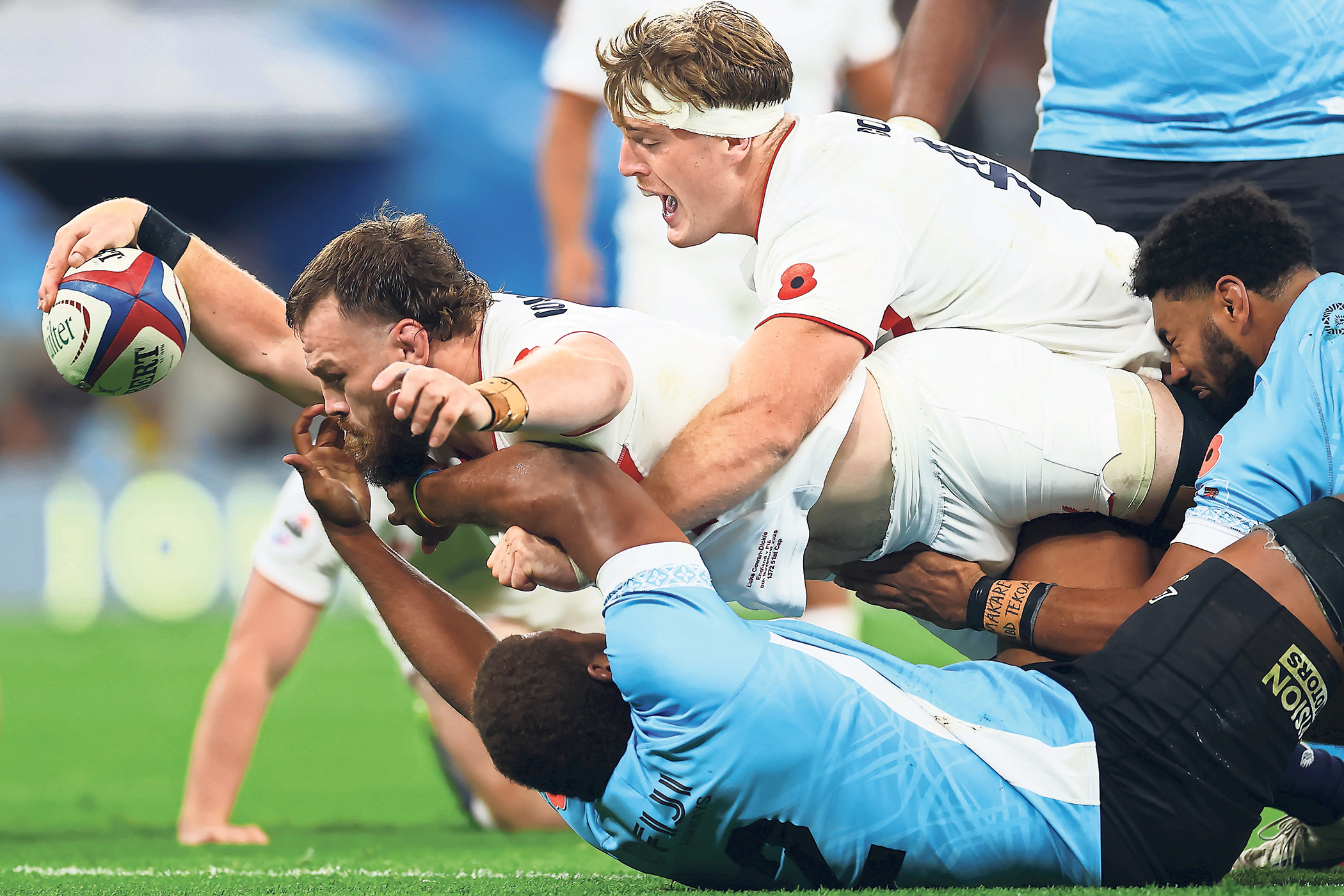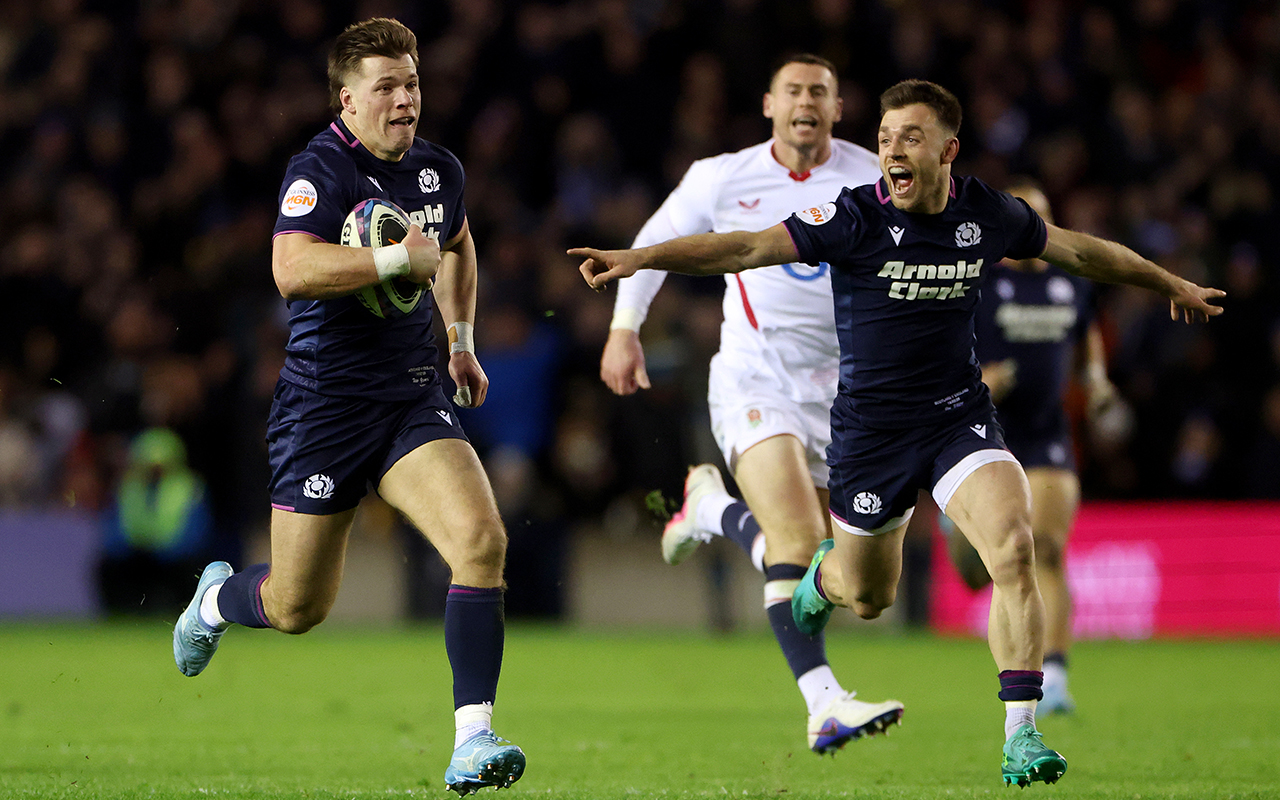Hopefully the following anecdote will help to convey why Fiji – despite losing 38-18 to England at Allianz Stadium – are the most talented rugby nation on the planet. A few days after arriving in the country back in 2013 to take up his new role as head coach of the men’s sevens side, Ben Ryan began scouting and evaluating the local talent.
Ryan would end up browsing a copy of The Fiji Times to see which local tournaments were being held across the country’s many islands, but his first week was a little different. An international sevens competition, sponsored by Fiji Water, was being held on Denarau Island, with teams from the United States, Australia and Argentina all flying in.
There was one other team of note participating in the competition. Not an international side, but a sevens squad made up of staff from the Hilton Fiji Beach Resort and Spa hotel on the island. Yes, a team of hotel staff, facing off against some of the best sevens teams in the world. “And they smashed Argentina,” says Ryan. “I had previously [as head coach of England sevens] been struggling to beat Argentina. I saw this hotel staff team smash them and thought, ‘Jesus, if we can get this talent aligned, then we will have some group of players’.”
Ryan, now performance director at Premier League football side Brentford, went on to coach Fiji to the country’s first-ever Olympic medal, winning gold in Rio in 2016. He immersed himself in the country, the culture, seeing this love of the sport up close across the many villages. Rugby at its purest.
“[They have] this very clear way of playing: high-risk, in the moment, fun, offloading. Never on a pitch with lines or with a nice shiny ball and everyone in the right colour kit. It was chaos everywhere. It just played into this instinctive form of reckless, joyful rugby. I suppose it was a mirror of island life. You live in the present because you have no idea what is going to happen tomorrow. They just think [about] how it feels.”
Balancing that joy, that sheer abundance of natural ability, with the realities of professionalism has been a constant struggle since rugby union turned professional three decades ago. Ever since, the Fijian talent factory was viewed by other nations as ripe for picking, with scouts and agents dispatched to monitor schoolboy tournaments, offering scholarships to the best prospects as young as 13 years old. So many players popped up playing for other nations – Sitiveni Sivivatu and Sevu Reece (both New Zealand), Virimi Vakatawa (France), or players who left Fiji as young children including Joe Rokocoko (New Zealand), Lote Tuqiri (Australia) and Joe Cokanasiga (England) – that combined XVs were often wistfully drawn up highlighting the players lost to the national side.
The export of so much talent, the lack of resource and structure in Fiji, the years of financial mismanagement off the field – all of those factors have culminated in a feeling of uneasiness, a nagging sense that Fiji were giving so much to the game without experiencing the benefits that other nations enjoyed. Returning to Ryan’s memory of that tournament, imagine how many talented players slipped through the net because the right systems were not in place. Or because rugby became an afterthought because they needed to work to provide for their families.
Also, while it is easy to denigrate those scouts and agents scouring the Pacific Islands, think of the flip side: the prospect of a top scholarship overseas for those teenagers. “[It is] an opportunity for generational change in that family,” said Ryan.
The good news is that when it comes to the professionalisation of rugby in Fiji, the tide appears to be turning. Not just on the field – back-to-back Pacific Nations Cup titles, defeating England for the first time in 2023 and Scotland in Suva this summer, effectively knocking Australia out of the last Rugby World Cup – but more importantly off it. The addition of the Fijian Drua team into Super Rugby has been a huge success and created continuity, giving players the option to play professionally and stay in Fiji rather than go overseas. Twelve of the 23-player matchday squad who faced England yesterday play for the Drua, who are part-funded by the Australian Rugby Union.
Last year World Rugby readmitted Fiji to the World Rugby Council following a suspension, after the game’s governing body had previously had to step in to provide a roadmap helping with the day-to-day administration of the Fijian Rugby Union following “governance challenges”. Debts in the past three years have also been significantly reduced, and a new Fiji Rugby Players’ Association has been created.
Newsletters
Choose the newsletters you want to receive
View more
For information about how The Observer protects your data, read our Privacy Policy
The addition of Fiji to the top tier of the Nations Championship next year, rugby’s new Test competition, will generate more cash. Sure, everyone would rather see Fiji host the world’s best in Suva, but the prospect of a revenue share model at bigger stadiums around the world for the FRU is, understandably, too good to turn down.
Intriguingly, earlier this year the FRU agreed memorandums of understanding with the unions of both Qatar and China, with plans to launch a number of initiatives, including joint high-performance programs and crucially with Qatar, as described by the FRU chairman John Sanday, “shared commercial opportunities”. The Chinese Embassy in Fiji notably donated $10,000 (£7,641) to the Fiji women’s team this year, in recognition of International Women’s Day.
The reality is that a country with the 157th largest GDP in the world (according to the International Monetary Fund) is going to require external financial help to maximise its potential. And what potential.
There will still be bumps in the road. Two weeks ago, for example, an FRU senior operations officer, Jikoibau Matawalu, was suspended pending an investigation over allegations of improper use of the FRU credit card.
Still, the suggestion – the great hope – is that enough robust foundations are being put in place in order for Fiji, this outstanding rugby nation who have given so much to the game, to no longer be held back.
Photograph by Alex Davidson/RFU/Getty



